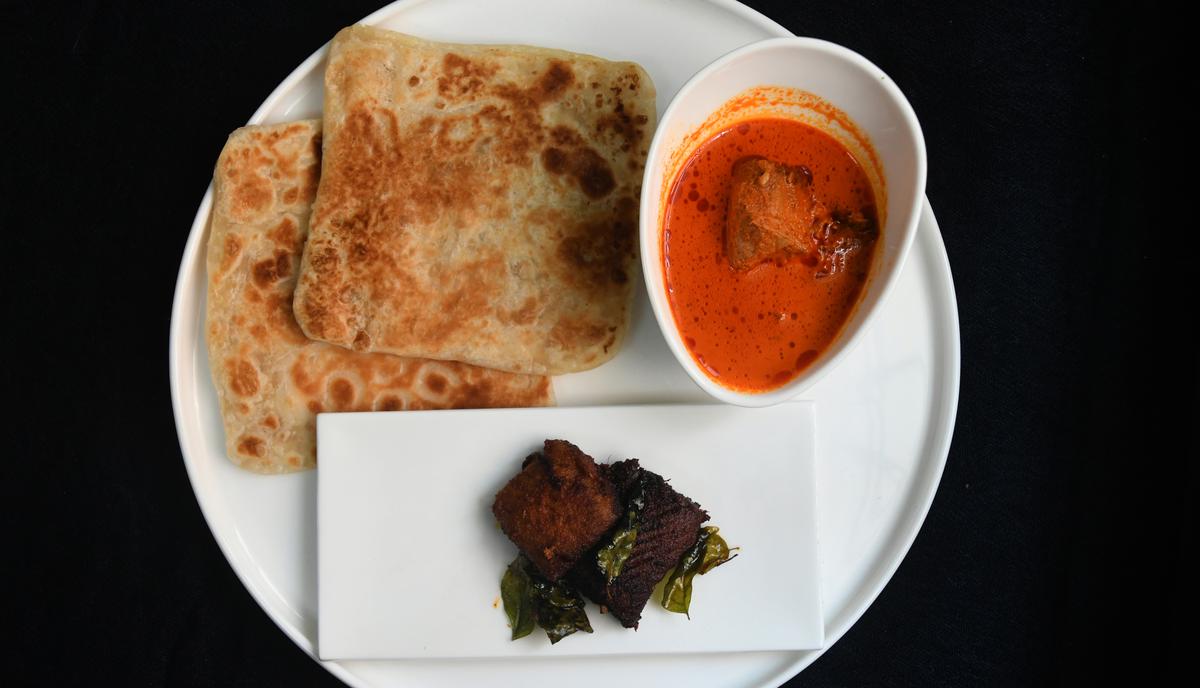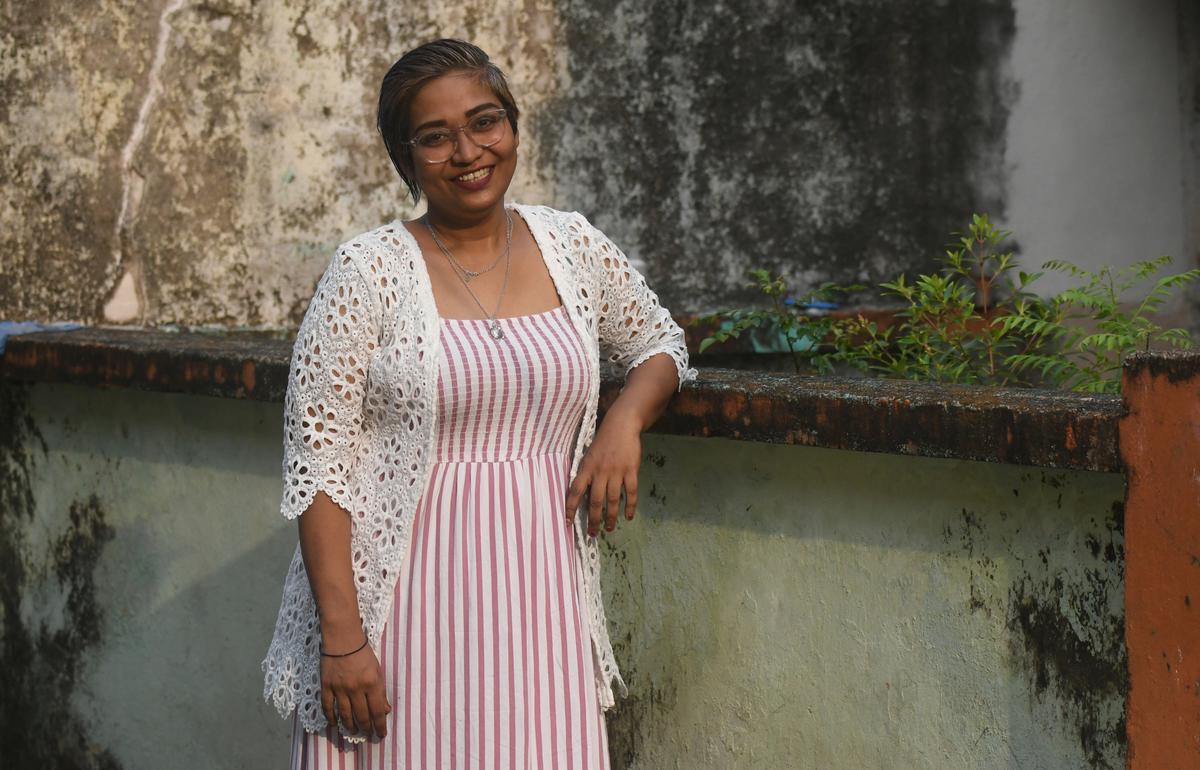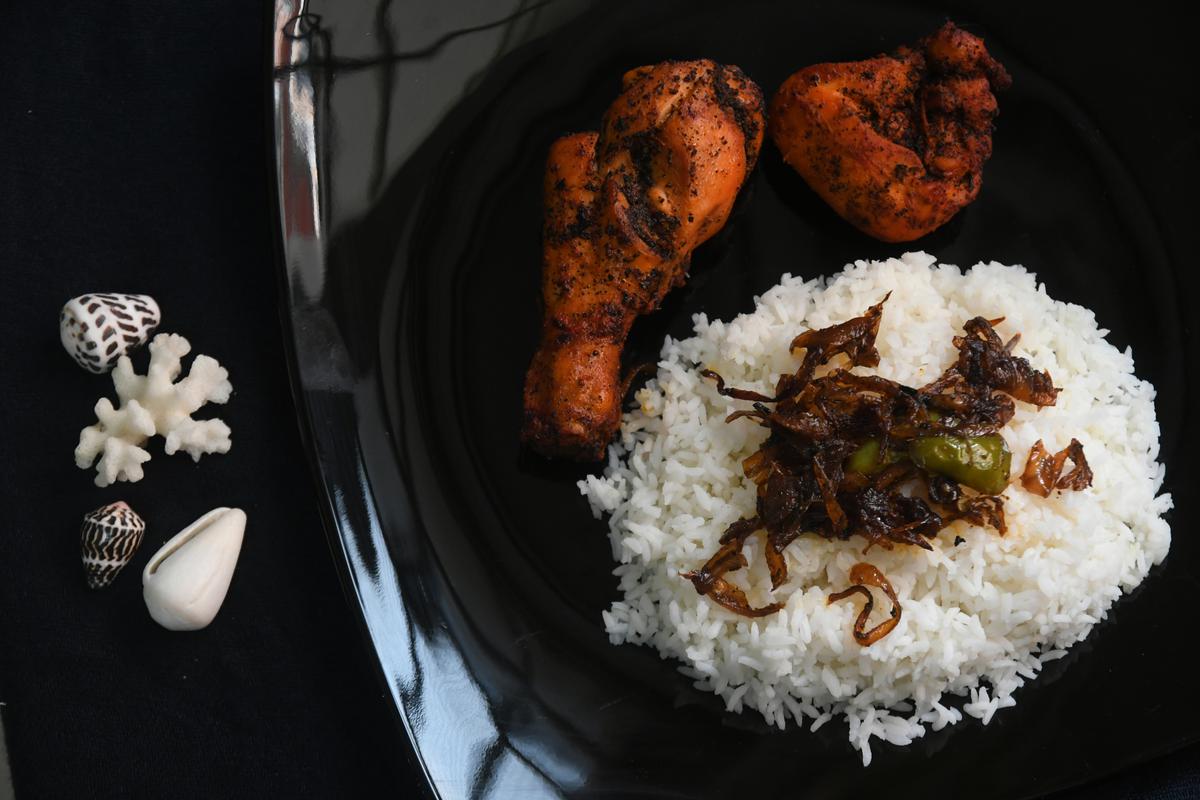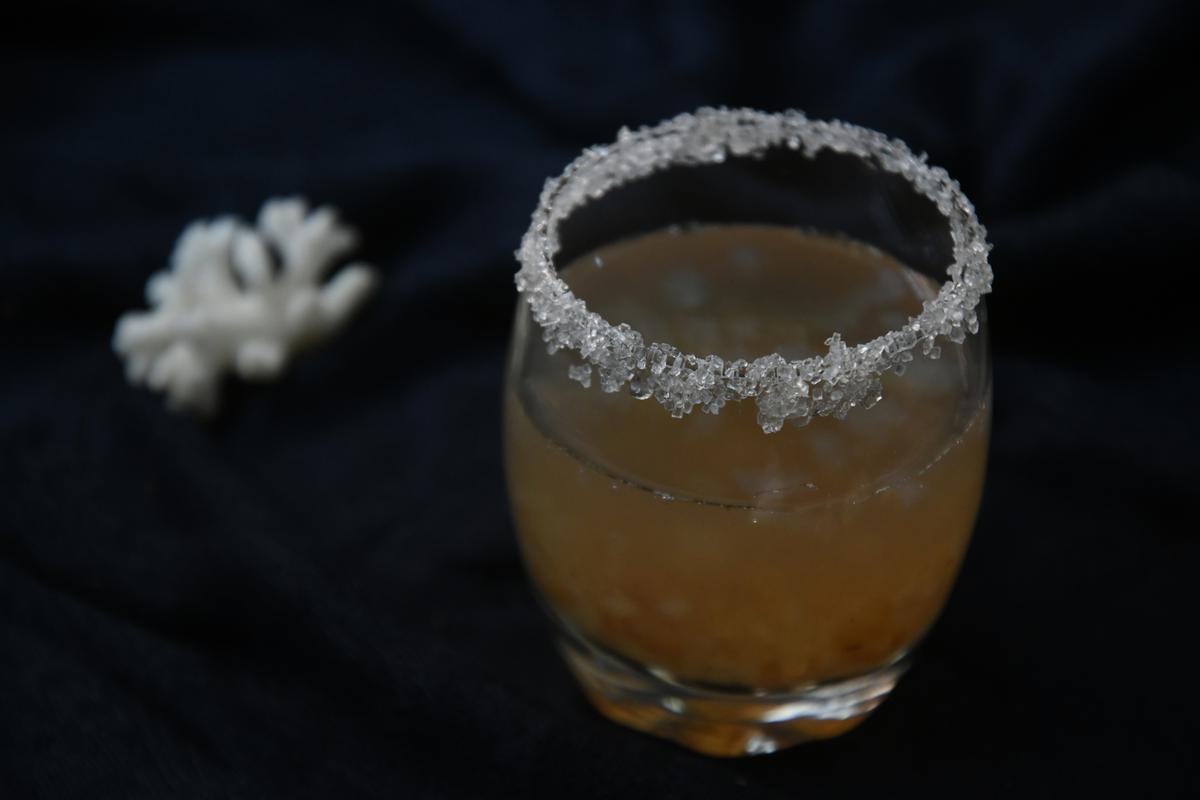Sukhaina Moosa’s FoodieMeSu brings the distinct, yet little-known cuisine of Minicoy Island of Lakshadweep to the mainstream
Sukhaina Moosa’s FoodieMeSu brings the distinct, yet little-known cuisine of Minicoy Island of Lakshadweep to the mainstream
“Let’s start with breakfast,” says Sukhaina Moosa, chef and founder of FoodieMeSu, Kerala’s only restaurant serving traditional food from the Lakshadweep islands. Seated at her small, yet well-kept restaurant kitchen in Kaloor, Kochi, Sukhaina explains what constitutes a traditional Minicoy breakfast. “A couple of faratas, which are rectangular maida (refiend flour) paranthas cooked on a pan until golden-brown, with Rairiha, a fiery red fish curry,” she says. At the restaurant, however, she serves Thelulimas (fried fish) too, with the combo. “The people here have been giving me great feedback,” she says.

Farata, Thelulimas and Rairiha combo
| Photo Credit: THULASI KAKKAT
The rairiha pairs extremely well with the faratas . “It is very similar to Kerala fish curry, in that it has coconut milk, coconut oil, curry leaves and spices, but we don’t use kokum or tamarind in our curries,” says Sukhaina. The delightfully consistent gravy, which contains garlic, onions, coconut milk and lots of chilli powder, is a unique take on fish curry.
Kiraliappam is another popular breakfast item of the islanders — a rice-flour pancake dipped in coconut milk, which is relished with rairiha. Fish, coconut and rice form the core of the cuisine in Lakshadweep; vegetables and meat are not staples. Each of the ten inhabited islands of the archipelago, however, has a distinct culture and cuisine.
Sukhaina’s restaurant brings the little-known, yet rich culinary history of Minicoy to the mainstream. She offers a combination of traditional dishes in addition to a few of her own recipes.

Sukhaina Moosa, chef and founder of FoodieMeSu
| Photo Credit: THULASI KAKKAT
Distinctive Minicoy
Lying close to Kerala in the mainland, the language, culture and cuisine of the Lakhshadweep islands have many similarities to that of the State; but Minicoy, being at the southern most tip of the archipelago, has drawn greater influences from Maldives and Sri Lanka. “Our food has drawn inspiration from both countries. Even the language we speak, Mahal, is a mix of Arabic and Sinhala.”
All the fish curries are prepared using coconut milk (not ground coconut, Sukhaina clarifies). While Kavabu is a coriander-based curry, Sannathu is a thick semi fish gravy made of a masala consisting of ground vegetables and ajwain. It is garnished with lemon juice and green chillies. “This is usually had with Kirufoli, a crepe made of rice flour and tender coconut,” she says.
A standard meal, known as Garudiya, is a complete platter including soup, rice and side dishes. The soup, also known as Garudiya, is a clear tuna soup, accompanied by Rihakuru, a fish sauce made with sea water and fresh water. “This sauce is cooked for a week continuously, adding fresh fish to the vessel until it turns brown. This sauce, which does not contain any artificial preservative, can stay for years.” The meal also comes with Lonumirus, a salty, chilli paste with garlic and Mas-huni, a dry fish, coconut and green chilly chutney.
Though born in Minicoy, Sukhaina has spent a large share of her life outside — in Kerala, New Delhi, Bengaluru and other parts of India. When she settled in Kochi, she became a home chef and ‘chef handler’ for a food platform that delivered home-cooked meals to different parts of the city. “I have always been fascinated by food. My dad was a gifted cook and I remember the taste of the dishes he used to make. I derive my inspiration from him,” says Sukhaina.
YouTube channel
When the pandemic struck, she started her own YouTube channel, ‘Foodiemesu’, where she demonstrated traditional Lakshadweep dishes. Gradually, she began toying with the idea of having her own restaurant. After months of thought and planning, she opened FoodieMeSu two months ago. “When I drew up the menu, I decided to have a mix of traditional dishes and my own recipes,” she says.
Sukhaina offers a portion of ‘butterfly chicken’, her own recipe — grilled chicken breast dipped in soy sauce and egg, lavished in butter and herbs with a dash of lemon juice, which she serves with garlic rice. “I didn’t want to offer only traditional dishes, I wanted to add something standard as a fried rice and chicken, as well,” she says.
She gets her supplies from Minicoy. “The fish, coconut and oil here does not taste the same, so I prefer to get them from Minicoy.” (The island is 398 km from Kochi and can be accessed by sea).
Tuna is the only fish that is used, though white snapper (known as Filolu) is also treated as a delicacy. Sardines, mackerel and prawn, which are abundant and relished in Kerala are only used as bait in Minicoy. “In Minicoy, people still use the live bait pole and line method of fishing, ” Sukhaina adds. During monsoon, when tuna is unavailable, the islanders depend on fish from the lagoon, which are equally tasty.
Festive meats
Though meats are not a usual fare, on festive occasions such as Eid, mutton, beef and chicken are cooked. “While in Minicoy, one would not even find a meat shop, Androth Island prefer beef to fish. Though connected, the islands are diverse.” Biryanis are not made often and the one that is made is very different from the ones found in the mainland, says Sukhaina.

Fiya biryani
| Photo Credit: THULASI KAKKAT
The Fiya biryani, which she serves, is a flavourful biryani, yet subtle on the use of masala. Fragrant rice is placed on a bed of spicy fried chicken and caramelised onion. The layering is done and topped off with more caramelised onion. “This involves a lot of work, as we use a lot of onions, which have to be caramelised.“
Snacks and desserts

Fuhggan (arrow root drink)
| Photo Credit: THULASI KAKKAT
Sukhaina has not yet added snacks and desserts to the menu, but plans to do so soon. “We have a platter full of beautiful snacks,” she says. Bisfarata, the most popular, is deep fried farata made using maida and egg with a hint of rose flavour. Sukhaina’s favourite is the Fathufukuthu — rice crepes rolled and filled with tender coconut and coconut sugar, folded into a crescent and steamed in banana leaf. “I cannot get enough of its taste,” she says. The Fuhggang is another of her favourites, which is a translucent drink made of arrowroot cooked and cut into jelly-like squares, rose-flavoured water and sugar.
The restaurant is open from 4.30 pm to 11 pm and is a take-away outlet.
Stay connected with us on social media platform for instant update click here to join our Twitter, & Facebook
We are now on Telegram. Click here to join our channel (@TechiUpdate) and stay updated with the latest Technology headlines.
For all the latest Life Style News Click Here
For the latest news and updates, follow us on Google News.
